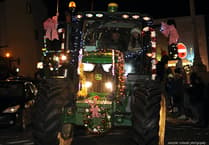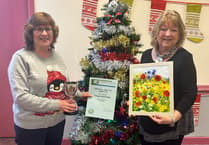This month the Tenby Literati Group discussed On the Black Hill by Bruce Chatwin, the story of twins Lewis and Benjamin Jones, their parents Amos and Mary, their farm, and their community.
The relationship between the twins is intense; they share everything as children, even the food on their plates, and as adults they know each other so well that they can argue without speaking. While the twins are identical, they are different people and the differences can promote acrimony between them. Lewis cannot pursue any romantic relationships, constrained by his brother, and his frustration cuts deep. Mary has conflicting dreams for her sons: she wants them to marry and have families, while simultaneously keeping them for herself. Benjamin is content to stay close.
Mary has aspirations for her sons; she is an educated woman, the daughter of a clergyman. She inherits some money when her father dies, but recognises that she needs to secure her future. Amos is a farm-worker, ambitious for a farm of his own, and Mary’s money paves the way. He is also a passionate man, and their early years are mostly happy, but time, financial worries and the endless grind of farm-work brutalise him. He cannot reconcile himself to the sense that Mary has ‘married down’. In his frustration he hits her with the book she is reading: Wuthering Heights, a story of class, money, ambition and passion.
This detail is typical of the book. Many of the group members picked up on such details in the story, recognising the symbolism of them, and found them exquisite. The location, the Black Hill, was also symbolic; it is physically on the border of England and Wales, while the story spans the 19th and 20th centuries, time of great change in the outside world which barely impinge on life on the Black Hill.
The group noticed that the restrictive life and lowered expectations of the time and place generally led to an acceptance of peoples’ lot and a sense of contentment in the community, as lower expectations are more easily fulfilled. Lewis, when younger, has ambitions to leave, to travel, and to marry, but learns to be content as he ages.
Members also discussed the beautiful descriptions of the countryside, the sense of place, and the community. At the same time, this story could represent any small rural community with its depictions of the hardship of agricultural life and acute poverty.
Most of the group really enjoyed this book; it’s a clever book, written with an honesty and intensity that draws in the reader. Many members found it a lyrical and subtle read, gaining a new perspective from a second reading. Not everyone loved the book; a few were not engaged by the narrow life depicted and the depth of those lives did not resonate with them. Some found it claustrophobic.
Bruce Chatwin is perhaps better known as a travel writer, but this novel inverts expectations by staying in a limited geographic location and delving deep into the minutiae of his characters’ lives.
The Literati Group rated it 8.2/10.
This book is available for borrowing from Libraries in Pembrokeshire; a small reservation fee may be required if it is not at your branch, or if all copies are out on loan.





Comments
This article has no comments yet. Be the first to leave a comment.